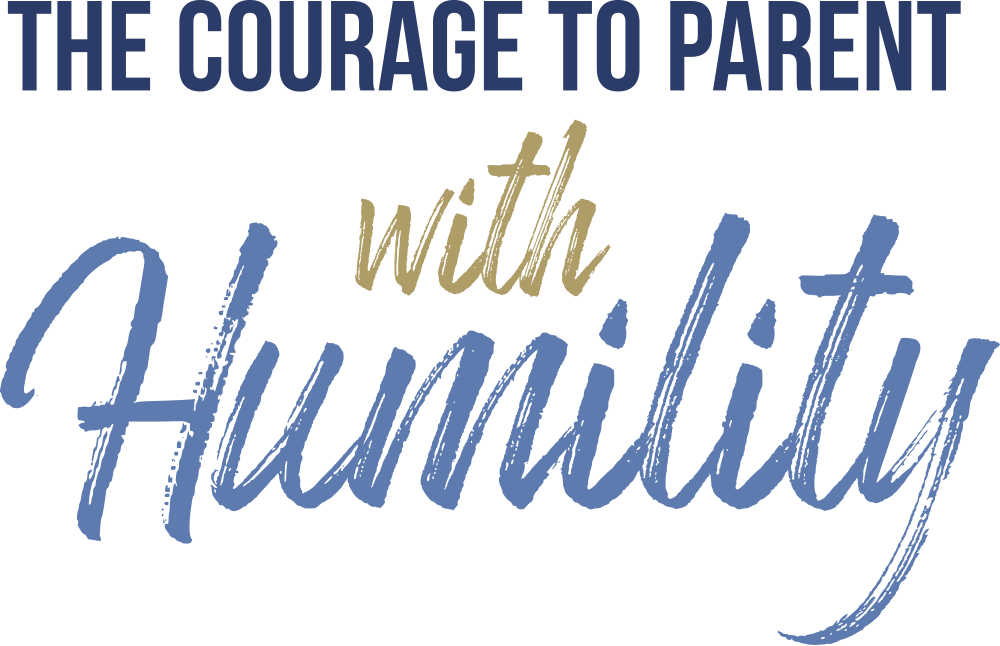

to parent kids differently than others. We’ve worked with almost a million families, most of whom get judged because they have strong-willed children who aren’t always immediately obedient.
Neighbors and family members judge these parents and say, “You just need to lay down the law and enforce consequences.” Of course, we teach parents to be calm, confident authority figures who know what is best for their children.
But what do you do when you have kids who literally don’t care about—and even sometimes willingly accept or flaunt—the worst consequences? You have to parent differently. Sometimes that means your primary tool is humility. But that sounds weak so it takes great courage to lead your kids with humility.
See, you have every right as the parent to demand your way. You do. But I want you to practice leading your kids with humility instead. Push and demand, and these kids will fight you. Humility breaks down walls. It’s the difference between demanding an apology and leading a child to contrition.
When you draw and lead these kids with humility, it releases them to do what is right. For example, two siblings are fighting. You demand that your child apologizes to his brother. He either resists or spits out, “Sorry, stupid brother!” And that’s what you deserve when you demand an apology!
Instead, you walk into the room and whisper, “I know you’re upset. I also know that when you’re ready, you know the right thing to do.”
And then you walk away and control your own anxiety, instead of freaking out that your child is somehow going to turn into a monster because he doesn’t immediately apologize like you do—especially if you’re a guilt-ridden people pleaser.
When you walk away, this shows respect for your child and for yourself. You’ve taught him the right path by modeling the behavior you desire. And when he’s ready—a beautiful, beautiful phrase you must master with the strong-willed child—he will do what’s right and apologize to his sibling. He will have owned it.
I sometimes tell a rather touching story about a boy who flips off his father. Yeah. You’ll like this. True story. A father has two sons. He tells the strong-willed child to do a chore and the child refuses. The father says, “Why do you have to be so difficult? Your brother never gives me any problems.”
And the strong-willed child proceeds to flip his Dad off, using words we can’t print here. Lovely. So what’s the calm response to that? “Oh, honey, I love how you express your emotions.” Nope, don’t think so. Here are two options.
Most of us will do what this dad did. “Young man, you will not talk to me like that or use that kind of language in this home! To your room for the rest of the night, all privileges revoked for at least a month!” Most of us would have added our own litany of all the horrible things this defiant, rebellious, ungrateful child has done since birth. And you will have accomplished nothing.
Except that a hurt child will be up in his room separated from a seething parent, the one person on earth who actually has the power to help him.
Imagine that the father calms himself, humbles himself, and knocks gently on his son’s bedroom door and says, “Son, I shouldn’t have said those things. I handled that the wrong way. I’m going to go walk the dog now, and when you’re ready, I’d like you to join me. I promise I will not lecture you, yell at you, or accuse you. I know you’re really frustrated, and I’m not mad at you. I’d like to listen and change myself.”
That hurt child will eventually join his father. They will be walking. Together. Side by side. Listening. Talking. Listening. Apologizing. Forgiving. But together.
Yes, I know you have the right to yell at your kids, and they can’t be defiant. But if you really want to get to the root of it, you’re going to have to humble yourself and lead your child to contrition. Because something deeper is usually going on.
The son ended up apologizing for his language and attitude. Why? The father’s humility led his son to contrition rather than a forced apology. The father apologized for never being happy with his son. The relationship slowly healed, but it began when the father turned a potential nuclear war into a bonding experience…

irk Martin is Founder of CelebrateCalm.com. He has shown over 750,000 parents how to stop the yelling, defiance, and power struggles with even the most strong-willed children. Listen to his free podcasts for more tips at: www.CelebrateCalm.com.